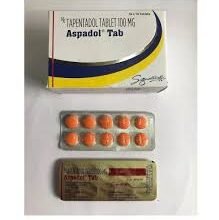
Albendazole is a broad-spectrum anthelmintic medication widely used in both humans and animals to treat parasitic infections. It is particularly effective against various intestinal worms, including tapeworms, roundworms, and hookworms. While this medication is commonly prescribed for livestock, its use in dogs, particularly across all breeds, requires careful consideration.
How Albendazole Works
Albendazole belongs to the benzimidazole class of anthelmintic. Its mechanism of action involves inhibiting the polymerization of tubulin, a protein essential for cellular functions in parasites. By disrupting this process, Albendazole prevents parasites from absorbing nutrients, ultimately leading to their death. This makes it effective against a range of parasites, including nematodes (roundworms), cestodes (tapeworms), and protozoa.
Albendazole Use in Dogs
While Albendazole is not the first-line treatment for parasitic infections in dogs, it may be prescribed by veterinarians for specific cases where other medications are ineffective. Albendazole is more commonly used in livestock because it has a broader spectrum of activity than some other anthelmintic. However, for dogs, its use is generally limited due to concerns about potential side effects and toxicity.
Considerations for Use in Different Dog Breeds
Albendazole Tablet can be used in many dog breeds, but it is important to understand that its safety and efficacy can vary depending on several factors such as the dog’s size, breed, age, and overall health condition.
Potential Toxicity and Side Effects
Albendazole is metabolized in the liver, and in some dog breeds, particularly those with compromised liver function, it can cause adverse reactions. Potential side effects of Albendazole include:
Bone Marrow Suppression: This is a serious side effect that can lead to a decrease in red blood cells, white blood cells, and platelets, potentially causing anemia and increased risk of infections.
Liver Toxicity: Albendazole can cause liver damage, especially with prolonged use or in dogs with pre-existing liver conditions. This is particularly concerning for breeds prone to liver problems, such as the Doberman Pinscher.
Gastrointestinal Upset: Vomiting, diarrhea, and loss of appetite can occur, especially if the dog is given an incorrect dose or if the dog is sensitive to the medication.
Breeds Prone to Sensitivity
Some dog breeds may be more sensitive to Albendazole due to genetic factors. For example, herding breeds like Collies, Australian Shepherds, and Border Collies can carry a gene mutation known as the MDR1 mutation. This mutation affects how these dogs metabolize certain medications, including Albendazole, making them more prone to toxicity. It is crucial for veterinarians to test for the MDR1 mutation before prescribing Albendazole to these breeds.
Veterinary Guidance and Dosing
Albendazole should only be administered to dogs under the guidance of a veterinarian. The dosage depends on the dog’s weight, the type of parasitic infection, and the dog’s overall health. It is important to never self-prescribe Albendazole for your dog without professional advice, as improper dosing can lead to serious Health consequences.
Veterinarians may also recommend regular blood tests to monitor the dog’s liver function and blood cell counts during Albendazole treatment to prevent complications.
Conclusion
While Albendazole can be used in certain cases for dogs, it is not suitable for all breeds, and its use should be approached with caution. Due to the risk of side effects like bone marrow suppression and liver toxicity, as well as breed-specific sensitivities like the MDR1 mutation, veterinarians often prefer alternative anthelmintic. When prescribed, Albendazole must be administered under strict veterinary supervision to ensure the safety and well-being of the dog.


